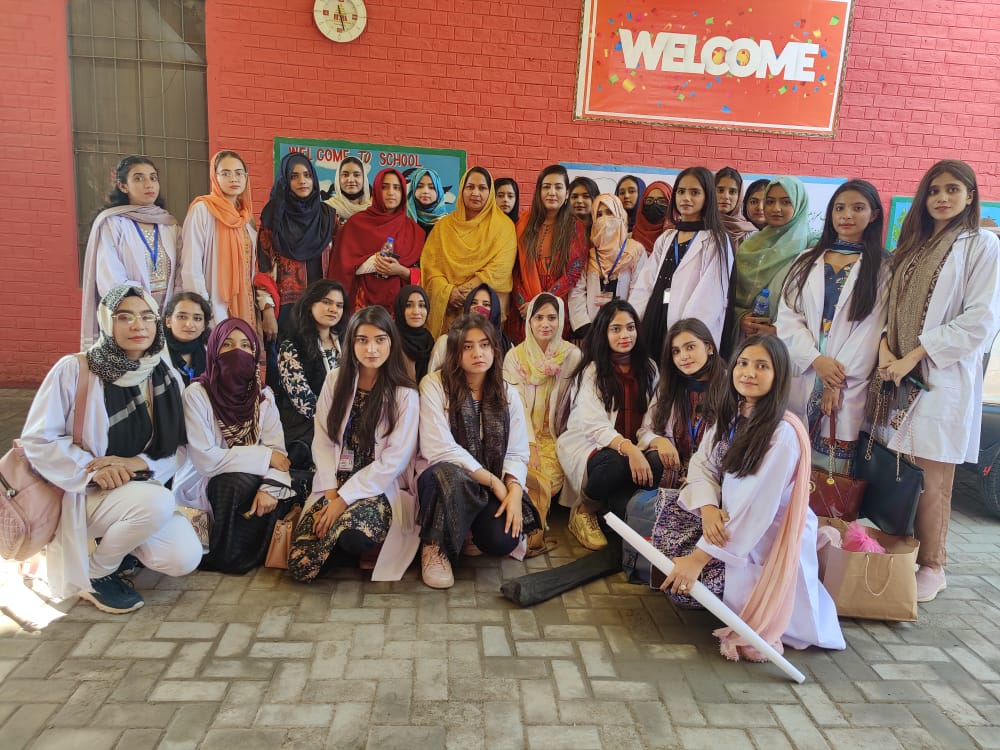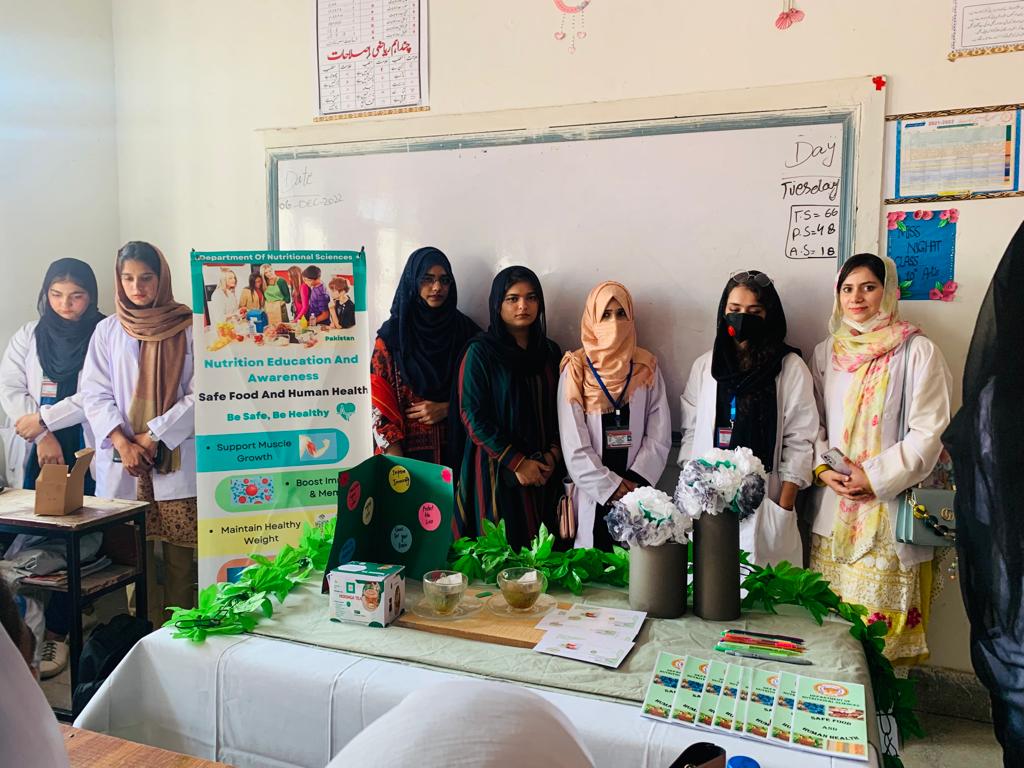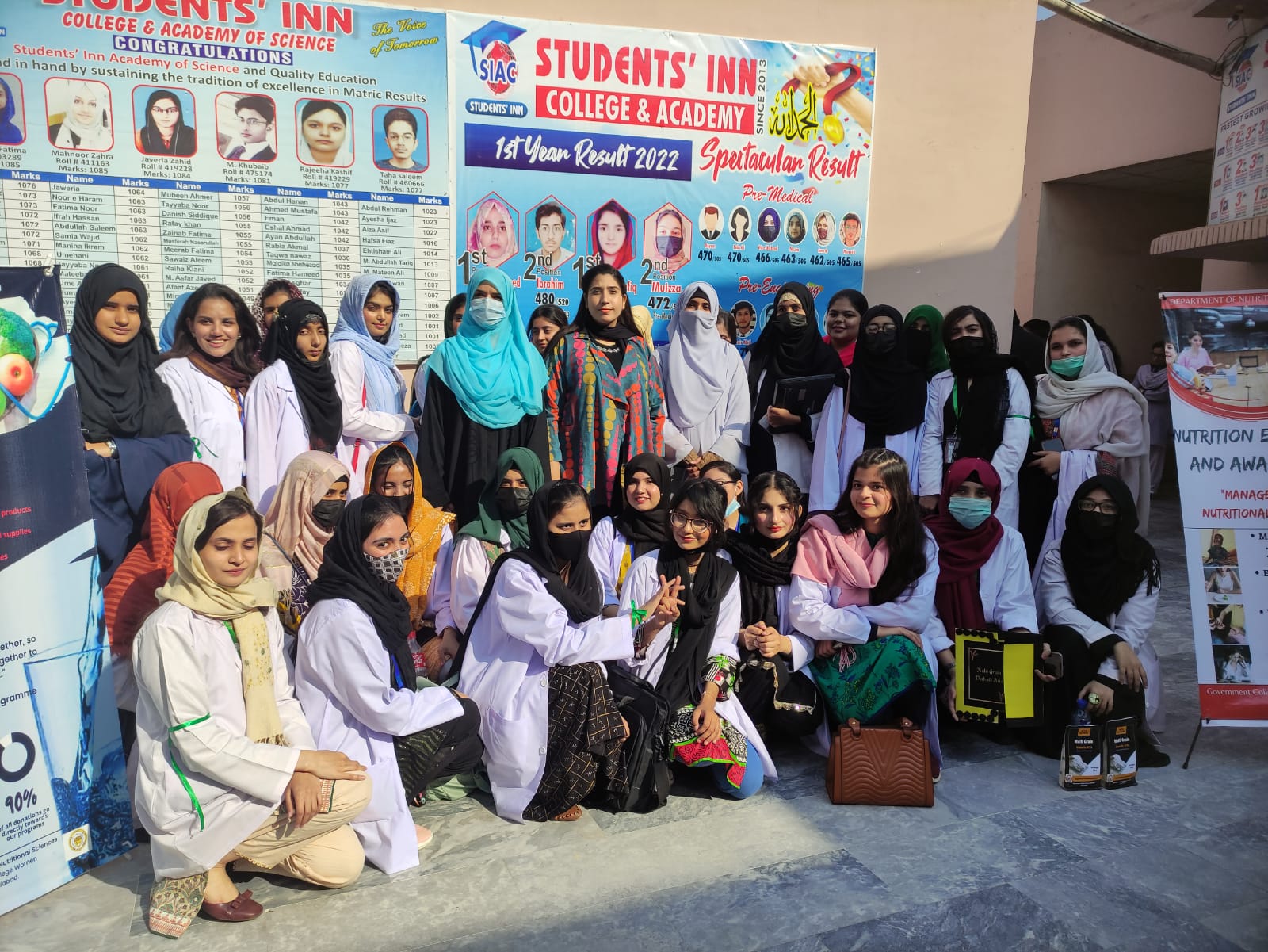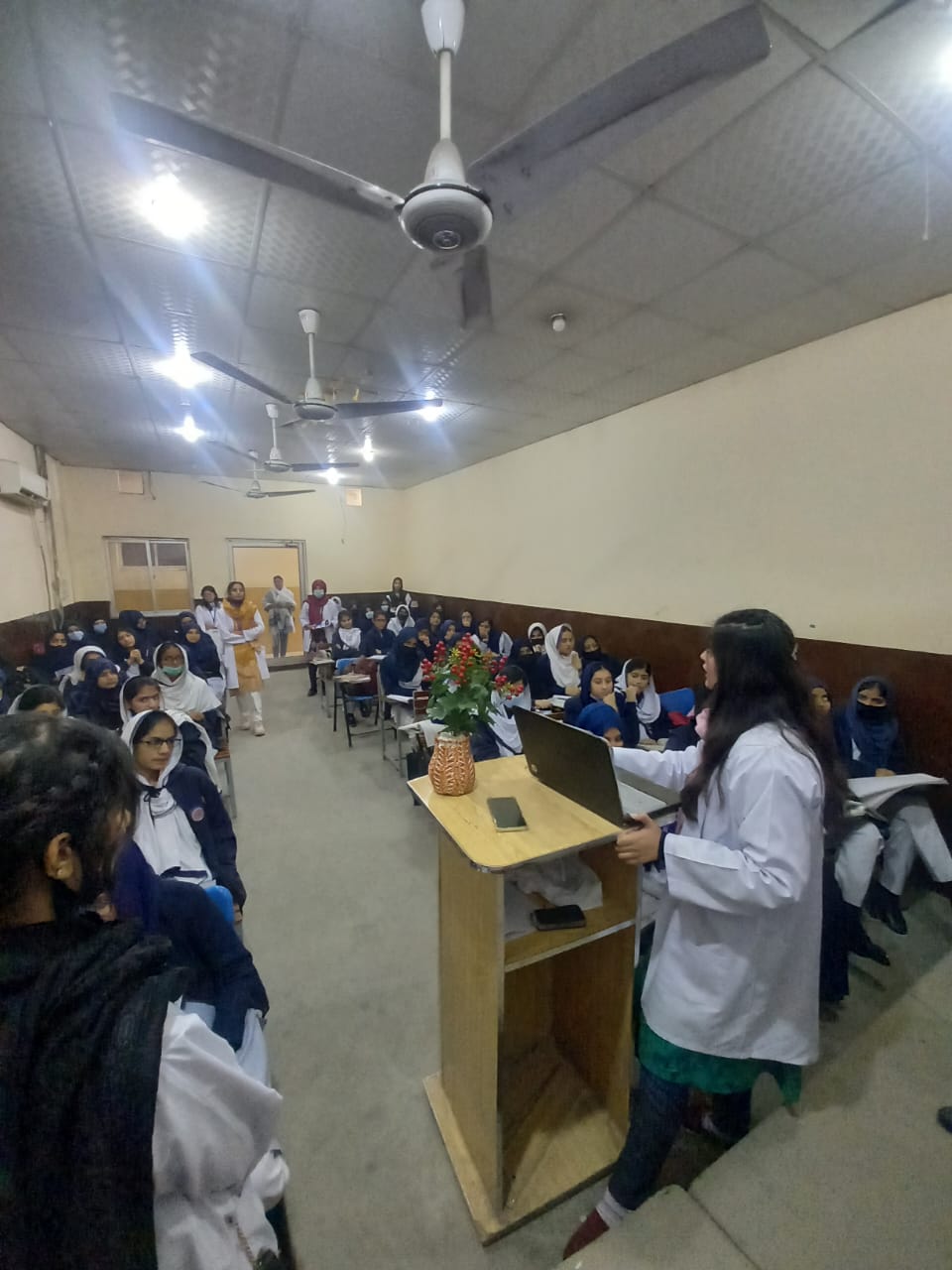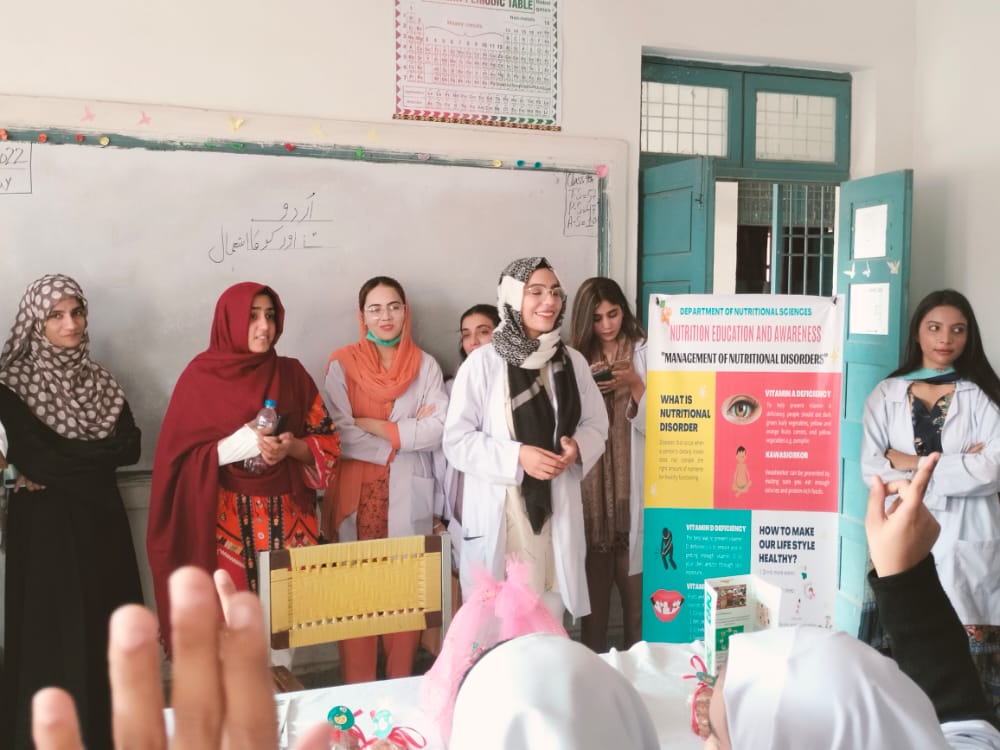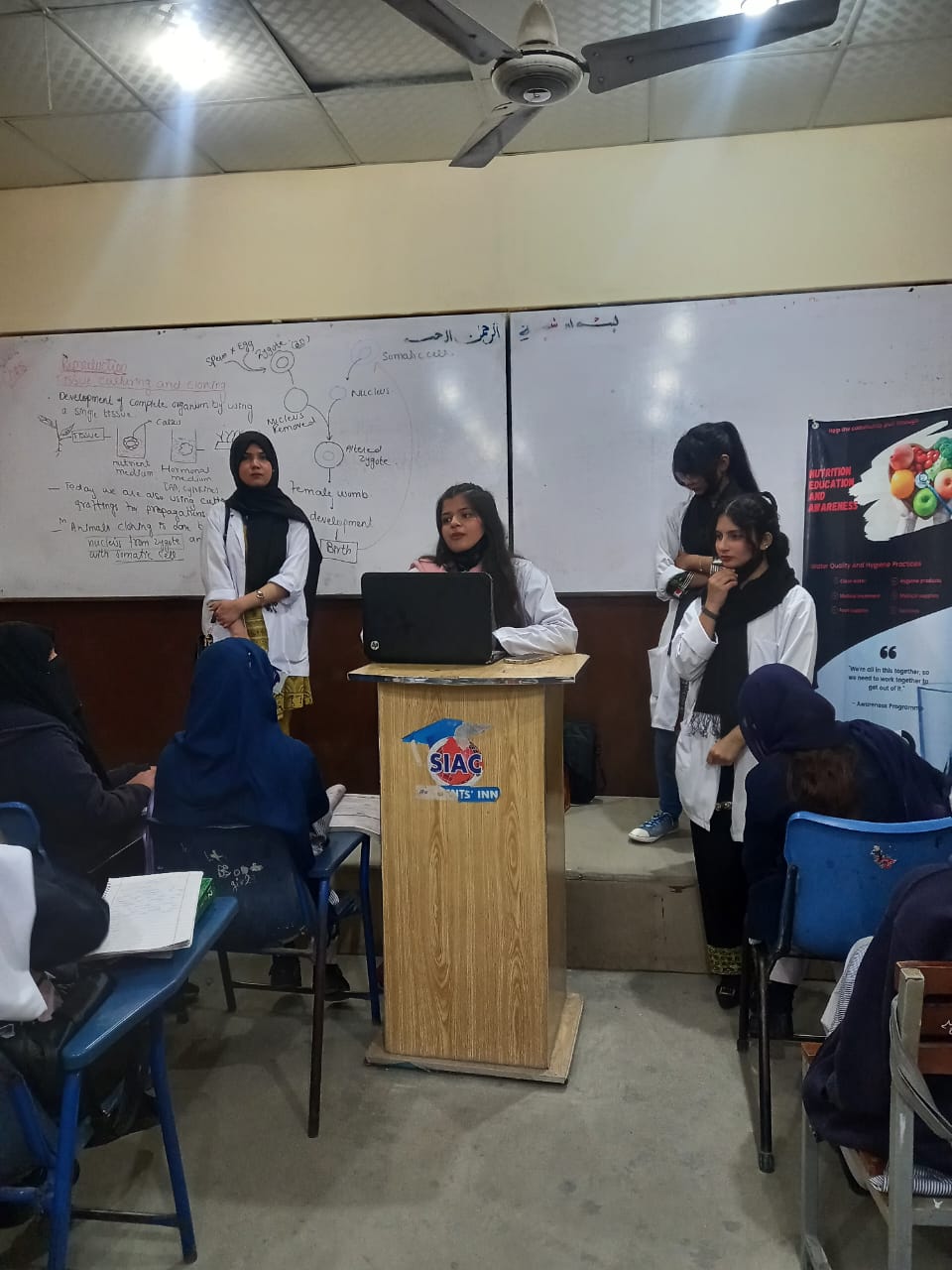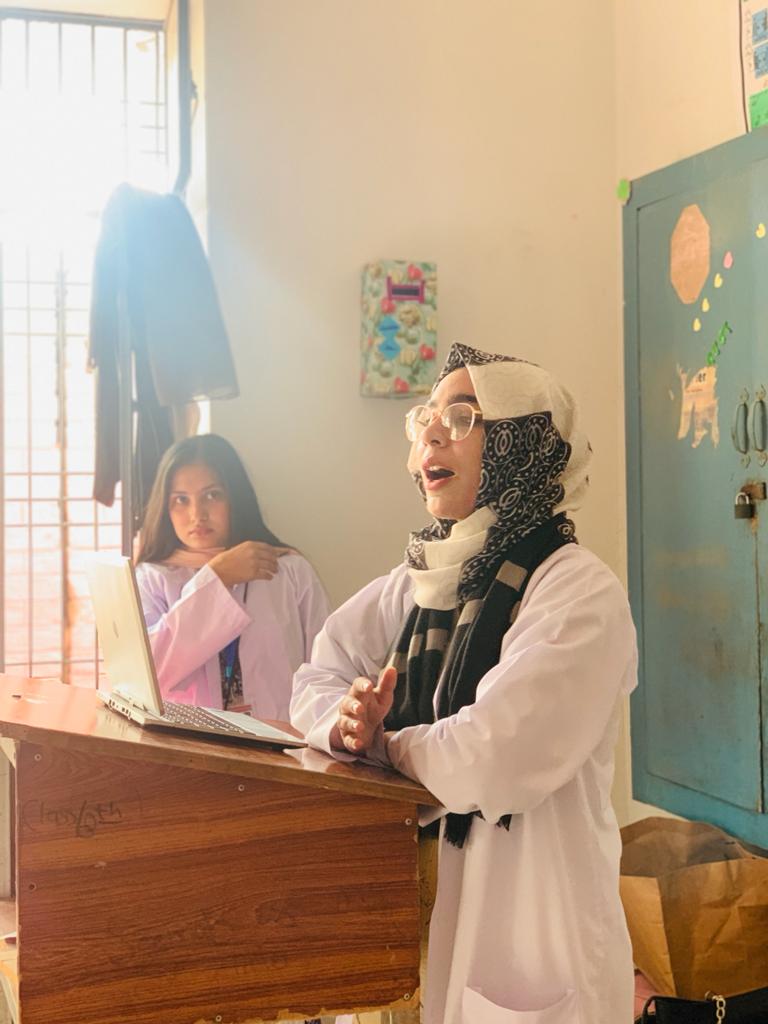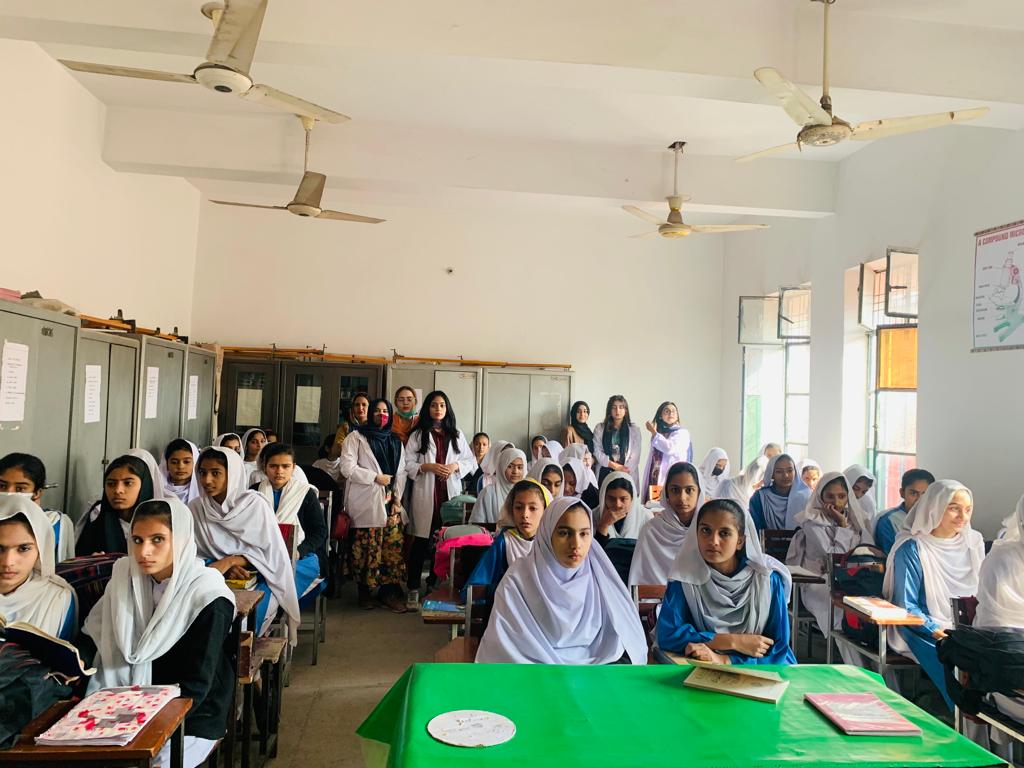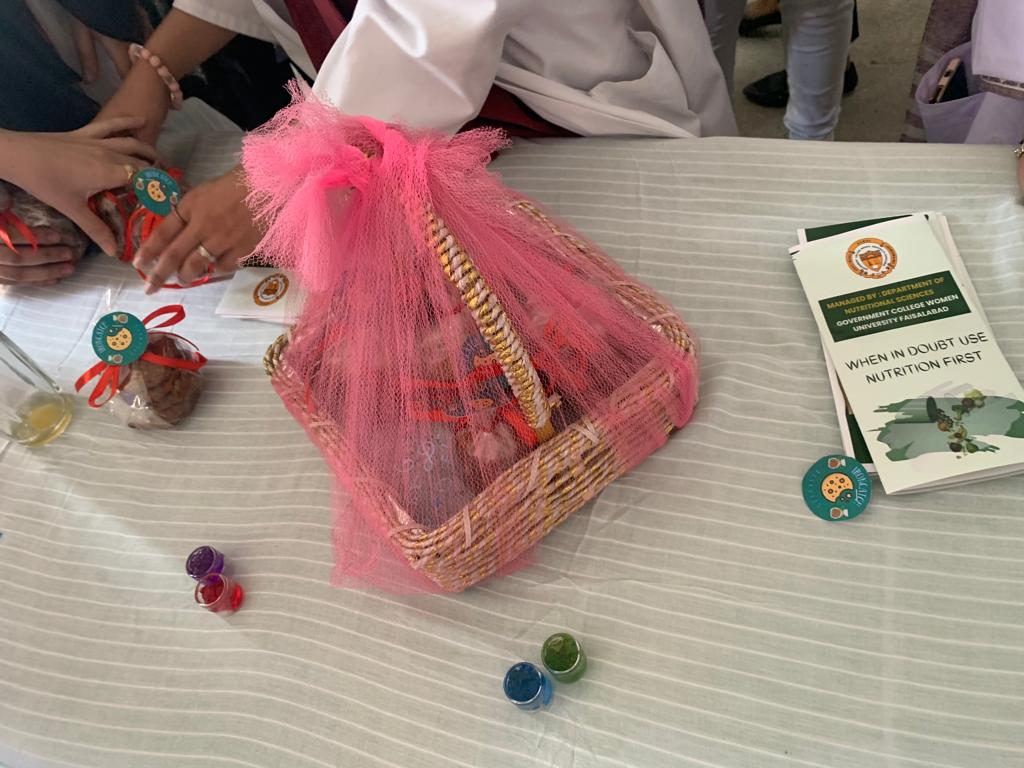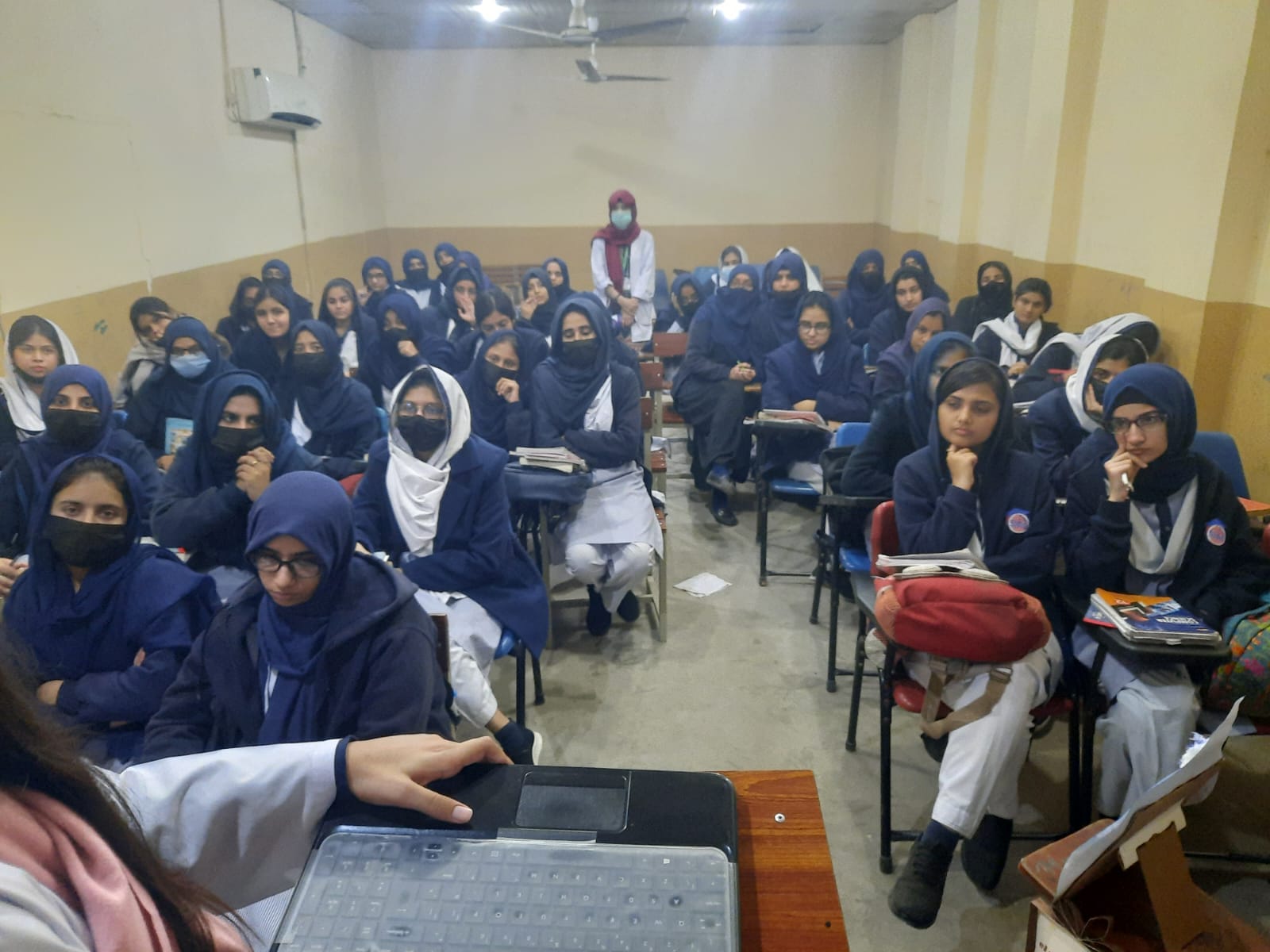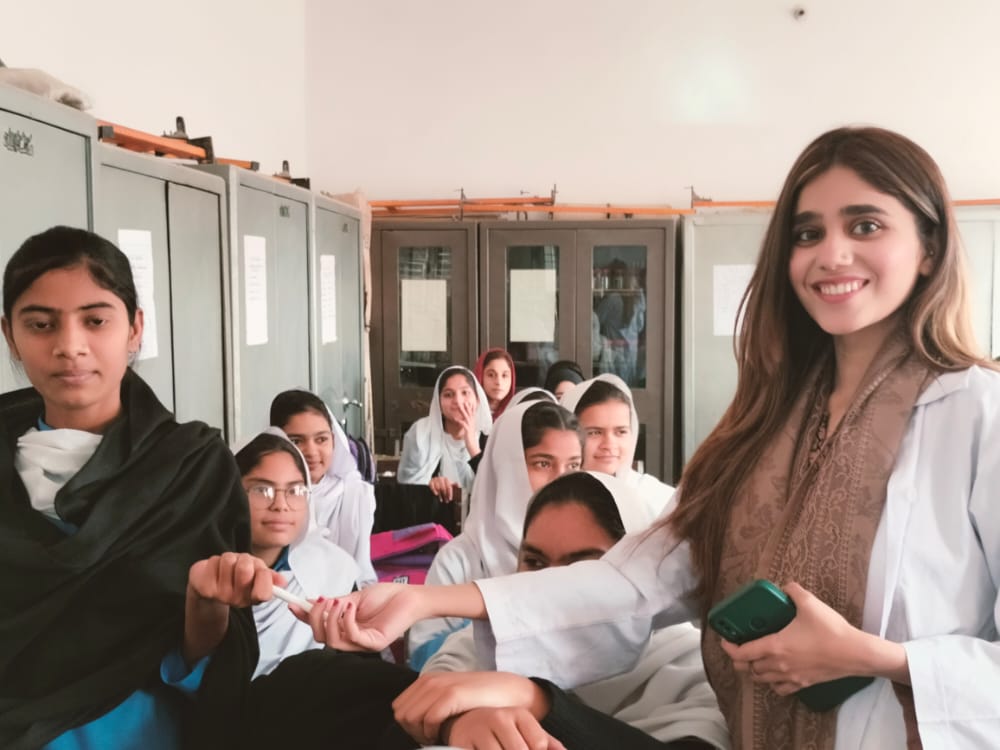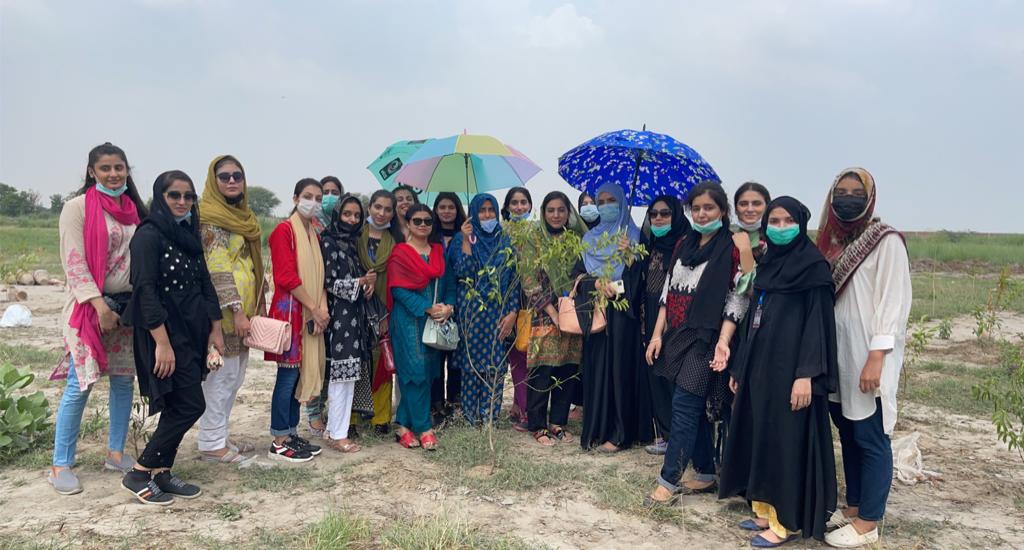The Department of Nutritional Sciences, GCWUF organized awareness sessions on nutrition education for the students of Students Inn College of Science and Commerce and Govt. Girls High School 203/RB Malikpur under the course title Nutrition Education & Awareness. The main objective of this activity was to create awareness among the common masses / community especially the adolescent girls. This activity was linked to the Sustainable Development Goals-III & IV i.e., ???Good Health and Wellbeing??? and ???Quality Education??? respectively. Four faculty members from the department Ms. Sonia Khan, Ms. Iqra, Ms. Abida and Ms. Humaira accompanied the students. Awareness lectures were delivered by the students of BS HND 5th MA on various topics, i.e., management of nutritional disorders, water quality and hygienic practices, safe food, and human health Students raised awareness of how the effects of poor sanitation seep into every aspect of life such as health, nutrition, development, economy, dignity, and empowerment. Globally, water and sanitation hygiene practice are responsible for 90% of diarrheal diseases and mortality, the rate is much higher than mortality from malaria and HIV/AIDS. Safe food is essential to human health and well-being. They also emphasized that educational institutions need to promote safe food handling and support good health. Young population needs practices of safe food handling at home and keep informed. Further, students elaborated that, good eating habits will help teenage girls not only to improve their nutritional well-being, but also to prevent nutrition-related diseases especially anemia, obesity, and diabetes in later years. The World Health Organization (WHO) reported that nutrition-related diseases account for about 60% of all deaths, and 43% of the global burden of disease. At the end of the sessions, short quizzes were conducted, and prizes were distributed among the respondents. Informative brochures were distributed among the participants. Nutraceutical that helps to reduce the burden of nutritional disorders were developed and displayed in the institutes. Almost 500-600 students and teaching staff of the institutes addressed on the important aspects. Principals of the institutes appreciated the efforts of the Department of Nutritional Sciences. I


